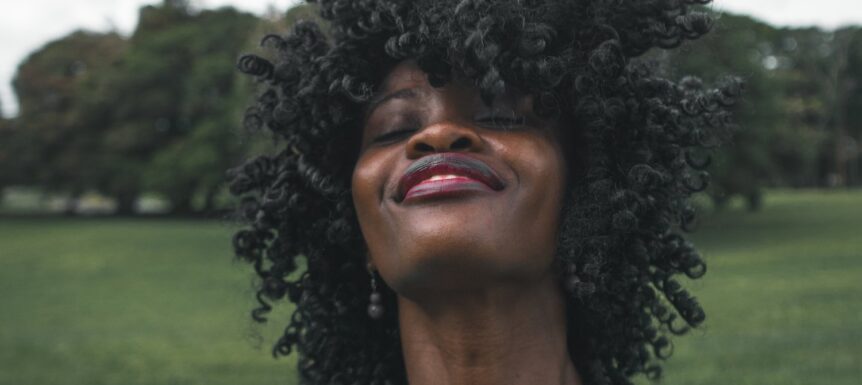BY NAIROBI WILLIESE BARNES
In this op-ed, Nairobi Williese Barnes explains why she made a video to share Black women’s stories about body discrimination.
Ever since I was a little girl, I was self-conscious of my Black features because I faced so much criticism from society.
At 5 years old, I remember my mom desperately taking me to hair salons across the Bay Area. I was denied every time, hearing other women tell my mother that my hair was “too much,” “too thick,” or “too unmanageable.” It broke her heart and damaged my self-esteem.
I was in third grade when my first crush told me, “you’re pretty for a dark-skinned girl!” and 9 years old when a girl embarrassed me by pulling on my braid asking, “is that really your hair?”
Finally, at 16, after years of loathing my beautiful features, I sat in front of a mirror and told myself, “you are enough.”
Studies have shown that Black women face discrimination in the workplace because of their hair — one study found that Black women with hairstyles like braids or afros were viewed as less professional by participants, while Black women with natural hair were less likely to get a job interview than their white peers, or Black women with straightened hair. While hair discrimination is one of the more common forms of body discrimination, there are so many other kinds that affect women of color, such as sizeism and colorism.
When I think of colorism, I often think of a person outwardly saying they prefer lighter skin than darker shades, but there are many micro-aggressions tied to skin tone bias — like the one my crush lobbed at me in grade three. Sizeism — being judged on the size and shape of their body — is another reality that many plus-size Black women experience when facing the world.
In a video for PBS NewsHour Student Reporting Labs, I tackled these subjects head-on. When I began imagining how this video would take form, I thought back to all of those bad memories, all of the times I was ridiculed for the way I looked, and thought to myself: “How many other women feel this way?” “How many women have faced adversity simply because of their looks alone?” “How many Black women have been rejected from jobs because of their hair?” “How many teenagers have developed eating disorders because of their shape?” “How many little girls have told themselves they’re ugly because they’re dark-skinned?”
I want better for them. I want better for this generation of women. I want them to go into adulthood with a newfound sense of empowerment, because they are no longer held back by “Eurocentric beauty”standards — societal ideas that give preference to European features.
Beauty is not defined by color, hair, skin, or body. It is your self-worth, the way you uplift others, how you show up in the world, and how you want to be seen that truly define being beautiful. I find beauty in my hair, from its thick roots to its curly ends; in my dark skin that glows in the sun; and in my shape in all its glory.
For this video, I sought out the women closest in my life: my mom, Eugena Barnes; my cousin, Dorian Allen; and my best friend, Gracie Siaw Osborne, who’ve all faced body discrimination in different forms.
It was surreal to talk with these women whom I’ve known most of my life and hear them echo the very same things that I’ve experienced. It made me realize that in doing this project, I was not only going to help other women see the beauty within themselves, but also realize how beautiful I am as well.
I believe projects like this are what create a stigma- and stereotype-free image of Black women. It shows that we are beautiful, educated, and well-spoken. We are women with a purpose who want to tell our stories, uplift others, and help raise a better generation than the one before us.
When I look to the future, I can imagine a world where micro-aggressions and body discrimination will wither away as we educate one another on what beauty means being a Black woman.
Article published by Hear Her Stories

